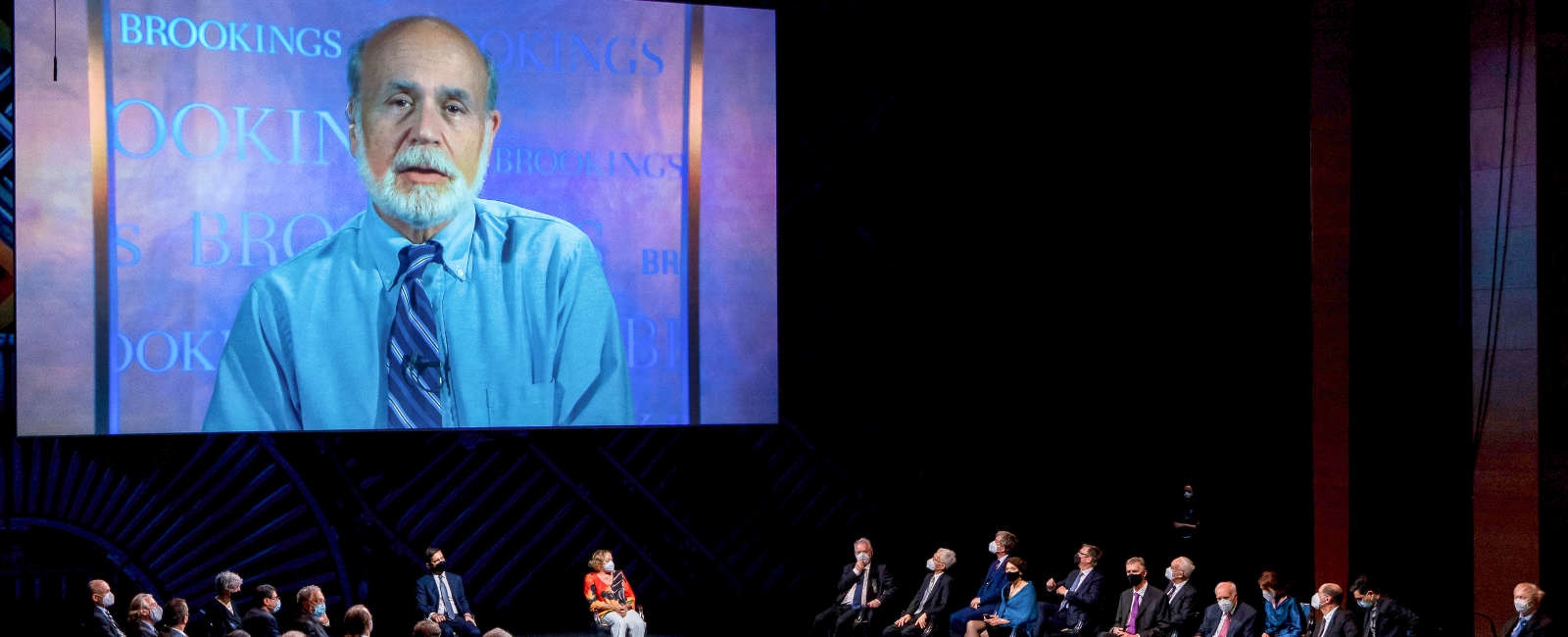Nobel Prize in Economics for Ben Bernanke, winner of the 13th Frontiers of Knowledge Award in 2021
Professor Ben Bernanke, who received the 13th Frontiers of Knowledge Award in Economics, Finance and Management, has won the 2022 Nobel Prize in Economic Sciences, along with Douglas Diamond and Philip Dybvig, for “significantly improving our understanding of the role of banks in the economy, particularly during financial crises,” according to the citation issued by the Swedish Academy. Bernanke, Distinguished Fellow in Residence with the Economic Studies program at the Brookings Institution (Washington DC) was joint winner of the 2021 Frontiers Award with Mark Gertler (New York University), Nobuhiro Kiyotaki (Princeton University) and John Moore (University of Edinburgh) “for fundamental contributions to our understanding of how financial market imperfections can amplify macroeconomic fluctuations and generate deep macroeconomic recessions,” in the words of the selection committee.
10 October, 2022
“In the last 15 years,” said the Frontiers of Knowledge Awards committee, “advanced economies have been hit by large macroeconomic shocks arising from the financial side. By 2008, fuelled by the liquidity glut stemming from emerging countries and by lax prudential supervision, many financial institutions of advanced economies had pursued a short-term-profit strategy and taken large risks: investing in real-estate bubbles, borrowing short on financial markets, getting exposed to poorly capitalized players, and so on. The governments and the central banks had to rescue a financial sector that was about to implode and would have been unable to perform its core functions: serve retail depositors, lend to small and medium enterprises, and run a smooth payment system.”
“What the great financial crisis, the European debt crisis, and the Covid recession have in common,” the committee continued, are the “weak balance sheets” of both financial and non-financial firms. “The macroeconomic effects of weak balance sheets were largely ignored by mainstream macroeconomics before the 1990s,” it added, “yet their economic importance is substantial.”
This importance emerged clearly in Professor Bernanke’s paper, “Agency Costs, Collateral, and Business Fluctuations,” co-written with Mark Gertler and published in 1989 in the prestigious American Economic Review. In it, the authors developed a model that shows that the health of its balance sheet is crucial for any firm seeking to raise funds on the market: if its financial position is weak, it will have to pay a higher premium for this external finance, which will erode its borrowing capacity and by this means limit its investment and, crucially, its productive activity. This downturn in activity will eat into its cash flow and asset prices, which will cause further balance-sheet weakening. The result is a “doom loop,” as the committee described it, which causes this small initial shock in corporate financial statements (due to production cuts, for instance) to activate a feedback mechanism that can lead to recession.
The rationale for non-conventional measures to combat financial crises
In follow-up studies, Bernanke launched the notion of the “credit channel,” referring to the amplifying effect that the dynamics of bank lending can exert on this negative loop. This is so because when banks consider a risk operation, they take into account the value of the investments to be financed, but also the business cycle and the financial statements of the firm requesting the loan. So the state of companies’ balance sheets, already eroded by the spread of the crisis to the real economy, may make it harder for them to raise finance through the banking channel, adding a new feedback multiplier effect. This credit channel, the citation stated, “shows how weak banks translate into a credit crunch, in which fragile firms (small and medium enterprises) that rely on relationship banking suffer.”
For the Frontiers committee, Bernanke’s work and that of his fellow laureates had sparked “an enormous literature that grew particularly rapidly after the great financial crises of 2008 made the relevance of his ideas clear. Following their contributions, it has become routine for economists to look at the implications of balance sheets for monetary policy, for capital controls, for understanding the role of the shadow banking sector – and the hazards related to it – and for prudential regulation reforms.”
This body of research would provide the rationale for the non-conventional measure known as quantitative easing that became the main monetary arm to combat these crises. Bernanke, at the time Chairman of the U.S. Federal Reserve, and therefore charged with facing up to the devastating effects of the economic mechanisms that he himself had modelled years before, referred to this time in an interview granted after hearing of the Frontiers Award.
“Absolutely [asked if his research provided academic support for the decisions he made as head of the Federal Reserve]. We don’t remember now, but there were many people during that crisis who argued that this was a problem for Wall Street, it was not a problem for the rest of the economy. I was quite convinced that major instability in the financial system, including the failure of a big firm, would not only be destructive to investors and to Wall Street firms, but would have major implications for the economy as a whole.” A view, he concluded, drawing on his research experience, that “increased the importance of trying to stabilize the financial system to avoid those implications for the broad economy which in fact we saw after the crisis worsened in 2008. So that was a very, very important principal that I tried to put into practice.”


